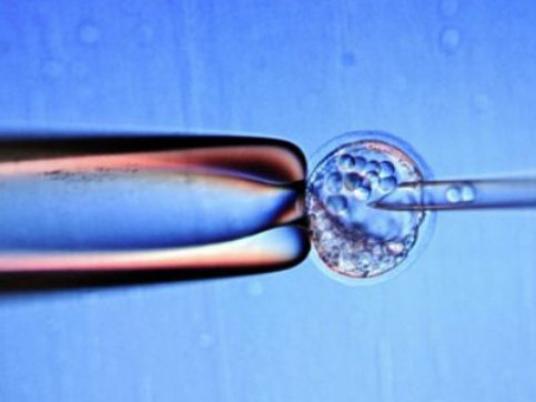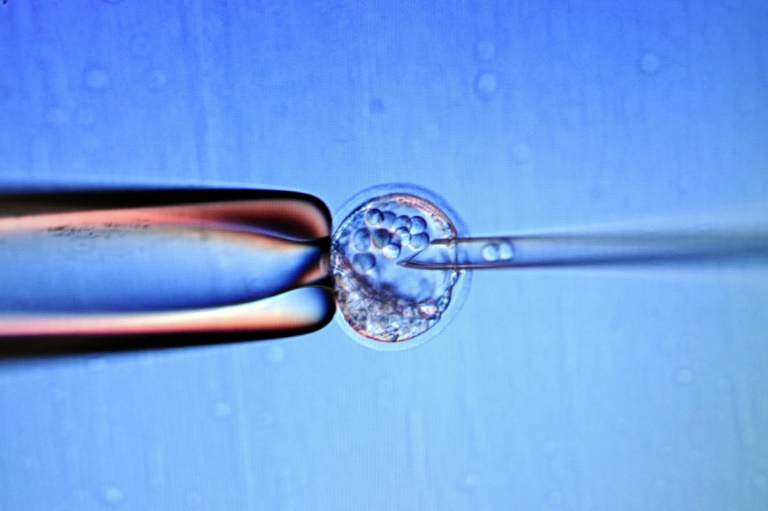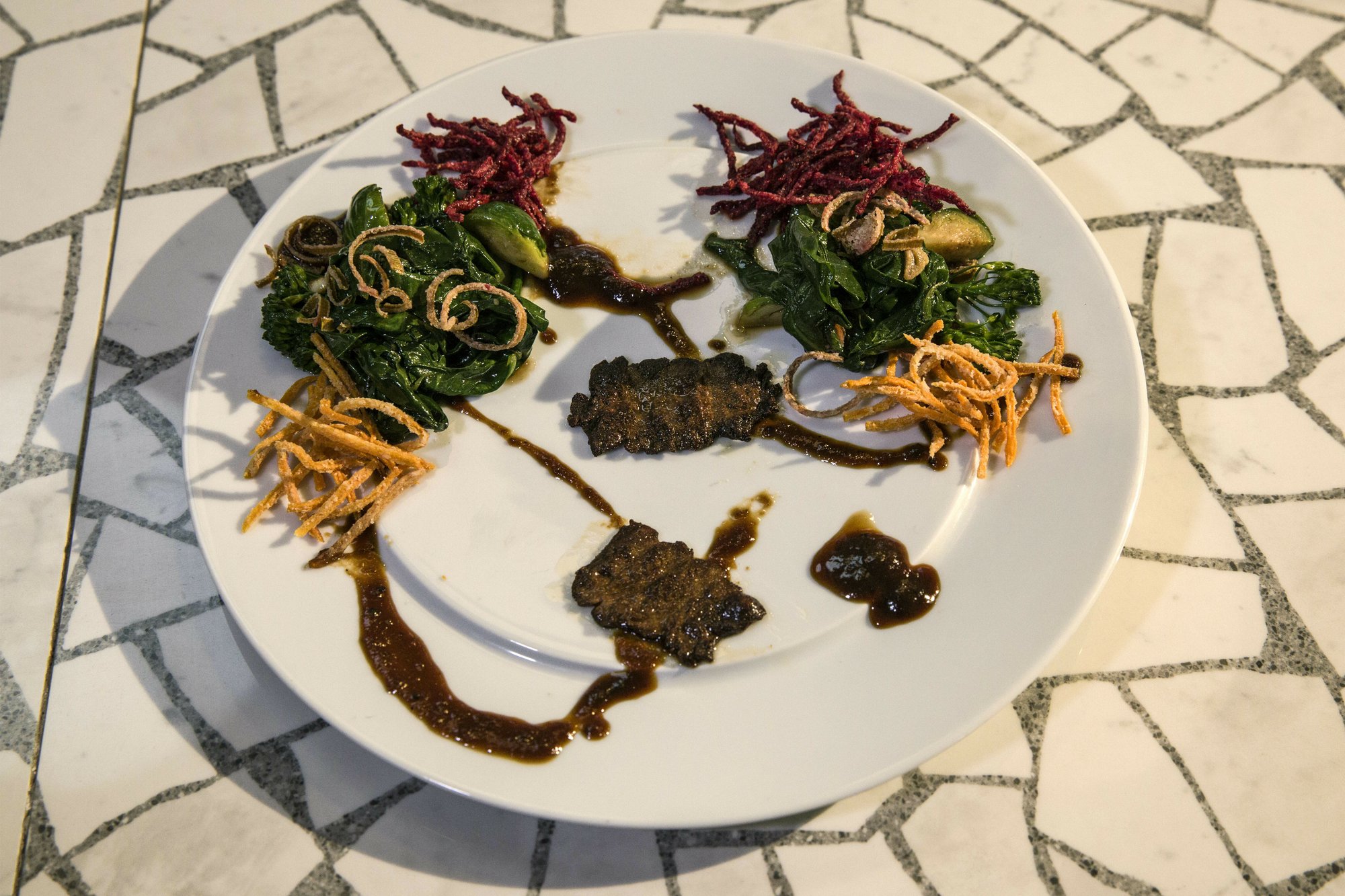
Last week, the Health Ministry inaugurated the first national stem cell research center at Sheikh Zayed Hospital, where, according to Assistant Health Minister Dr. Abdel Hamid Abaza, research will begin immediately.
As of Tuesday, the center had collected the names of 140 Egyptian patients interested in being part of the research and contributing to or receiving some form of stem cell therapy.
“People began calling straight away trying to get on the top of the list,” says Emad al-Sayed, public relations manager at the hospital. “This shows that there is public interest and trust in the therapy.”
The hospital is putting together informational packages regarding stem cell therapy, but Sayed says that the most common question people have had thus far is: “Is it haraam [sinful]?”
Stem cells are biological cells that have the potential to grow, divide, regenerate and develop into specialized cells such as muscle or red blood cells.
There are two types of stem cells: embryonic, which are found in the first four days of human development and eventually evolve to form the human fetus; and adult, found in the majority of adult human tissue, which serve to regenerate and restore parts of the body, such as skin or bone.
This developmental nature of stem cells — first discovered in 2000 — led many scientists to believe that entire human organs, such as the liver and heart, could eventually be grown in labs using embryonic stem cells, ultimately revolutionizing the practice of organ transplantation.
But at this stage, a functioning organ has to be grown from an embryonic stem cell. So far, the success of stem cell research and its associated therapy remains in using adult stem cells to restore damaged organ tissue, particularly bone marrow; however, the results and success rates of such therapies are still indeterminate.
“The success of stem cell therapy is very specific to the organ in question and how badly it’s damaged,” says Dr. Wael Abul Kheir, a stem cell researcher from Ain Shams University who is one of the first doctors confirmed to be working at the new center. Abul Kheir adds that results display a 60–70 percent success rate when dealing with restoring heart tissue, but a 20–70 percent success rate with spinal restoration, for example.
“It is a case-specific practice, and requires extreme attention to detail with regard to each case,” says Abul Kheir. “But when done properly, it can save lives.”
Egyptian university scientists have been conducting adult stem cell research since 2005, and established the Egyptian Society for Progenitor Cell Research, a local research circle with dozens of members, soon after, but doctors have been prevented from putting research into therapeutic practice.
“The Health Ministry under Mubarak would always turn down research proposals, particularly if it would cost them money,” says Abul Kheir, who is also the secretary general of the research center.
In addition to governmental opposition, stem cell research has also been met with some opposition for religious and ethical reasons, too.
Some Islamic scholars are still undecided whether or not the practice is haraam, as it appears as if scientists are trying to “play God.” However, issues appear to arise depending on whether one is talking about adult stem cell research, or embryonic stem cell research, which requires the destruction of an embryo.
According to Abul Kheir, Islamic scholars appear to be less opposed to the general idea than the Catholic church, which has been known to approve of adult stem cell research, but condemn embryonic stem cell research.
In 2005, when stem cell research first began in Egypt, then-President of the Egyptian Medical Syndicate Hamdy al-Sayed approved of adult stem cell research, but opposed the use of embryonic cells. Abul Kheir says this view has generally dissipated, and interest has risen again.
Unlike Germany, Italy and several US states, Egypt lacks laws against embryonic stem cell research, yet research here has been exclusively conducted with adult stem cells. Adult cells will also be the initial focus of the new center’s therapeutic goals, leaving uncertainty about what the future of embryonic research in Egypt would entail if pursued.
However, Abul Kheir says some scientists in Egypt believe that the indeterminate success rates of even adult stem cell studies make the therapeutic practices unethical. He responds to that charge by saying that such results are common in the early days of revolutionary science, and that further local research and case-specific assessments will determine and prove the practice’s feasibility, not opinions.
That being said, when the idea of establishing a research center was re-proposed to current Health and Population Minister Fouad al-Nawawy by scientists earlier this year, it was quickly approved.
In the inaugural announcement he gave last week on behalf of the minister, Assistant Health Minister Abaza said that LE500,000 has already been invested in the establishment of the center at Sheikh Zayed hospital, and that the final cost could be around LE5 million.
It was also said that patients will only have to pay for initial tests, and that all ensuing treatment costs will be covered at the state’s expense.
However, for the first two years, the center will only be focusing on [adult stem cell] research, after which it will also encompass patient treatment.
“[Adult stem cell therapy] is a revolutionary practice that will benefit the lives of many Egyptians who are currently suffering from a spectrum of degenerative diseases,” says Abul Kheir, who adds that encouraging stem cell therapy will also help to deter illegal organ trading on the basis that a large percentage of patients could be treated without needing a complete transplant.
With regards to whether or not the practice of adult stem cell research is haraam, public relations manager Sayed says that this information will be included in the informational packages sent out to those who sign up.
“In general it will show the scientific results, how it differs from transplants and embryonic stem cell research, and leave it to people to decide for themselves, or consult with the doctor directly,” he says.
The center is waiting for equipment to arrive so that its stem cell research can begin.



